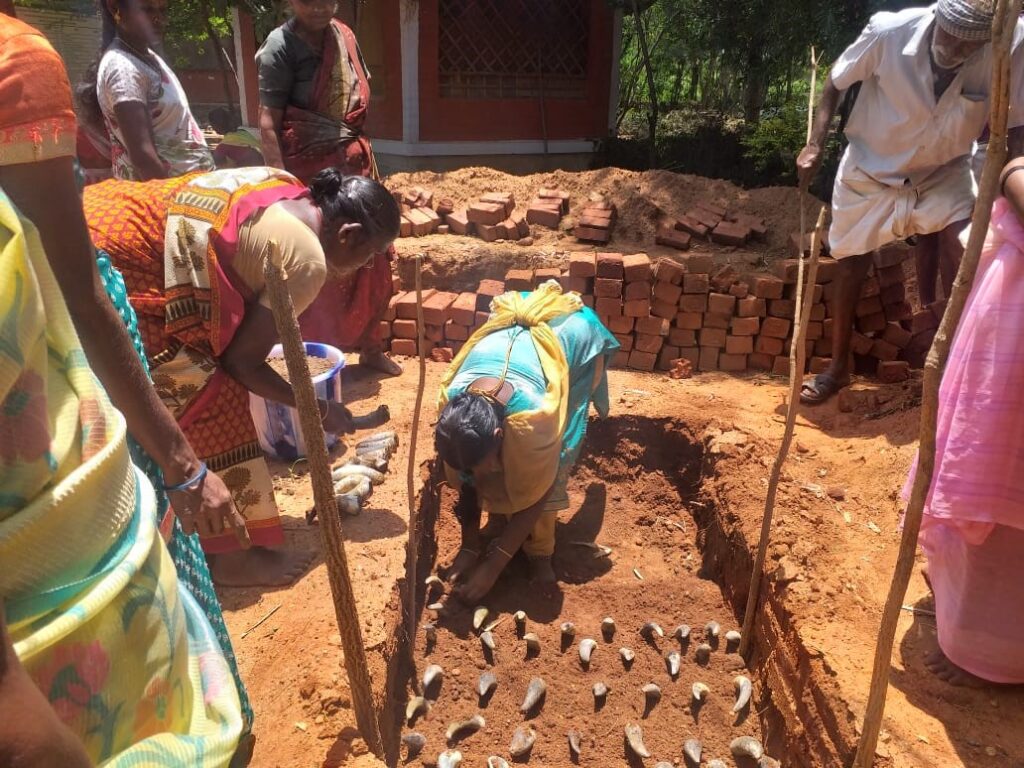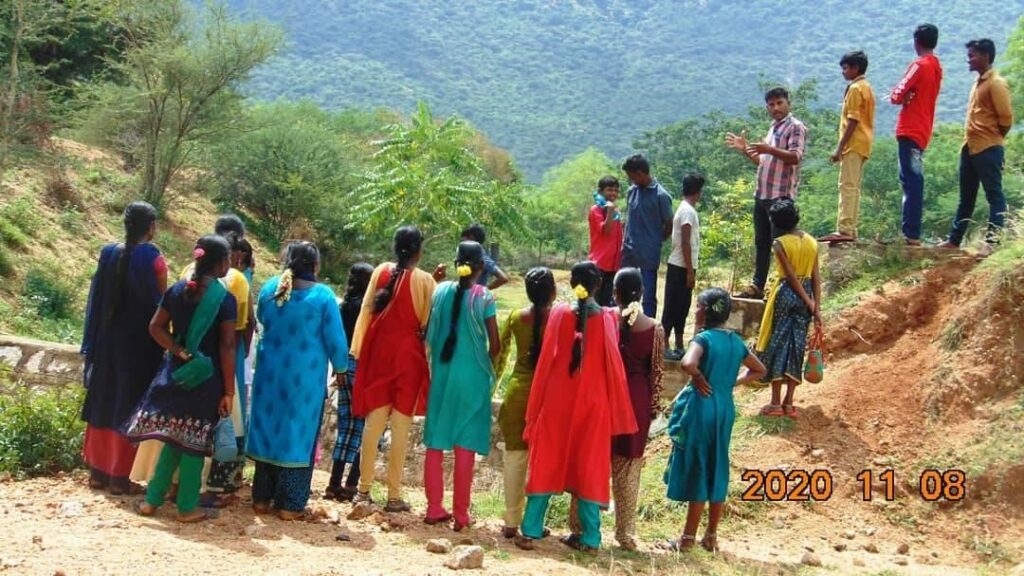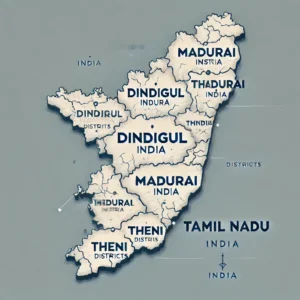

Our Journey: Building a Sustainable Future Together
1994 – 2000 | Laying the Foundation for Change
A Vision Takes Root: CIRHEP was founded with a simple yet powerful goal—restore degraded lands, improve rural health, and empower communities through sustainable natural resource management.
2000 – 2001 | Expanding Our Reach
Gaining Recognition: As our work deepened, we built stronger connections with farmers, women, and children. With key project support, we laid the groundwork for community-driven change.
2002 – 2003 | Watershed Development & Sustainable Livelihoods
Restoring Land & Water Security: We launched community-led watershed programs that replenished groundwater and made year-round irrigation possible.
Empowering Farmers: Training in soil conservation, water management, and sustainable farming helped farmers grow healthier crops and improve their livelihoods.
2004 – 2005 | Organic Agriculture, Nutrition & Women’s Land Rights
A Shift to Chemical-Free Farming: Farmers embraced organic and bio-dynamic agriculture, reducing costs while improving soil health.
Kitchen Gardens for Better Nutrition: Families started growing their own vegetables, ensuring fresh food on their plates while creating small income opportunities.
Women’s Land Rights: We worked to ensure women had fair access to land ownership, helping them gain control over agricultural resources.
2006 – 2010 | Scaling Impact through Partnerships & Youth Engagement
Stronger Together: Partnering with government agencies, NGOs, and researchers, we expanded watershed and rural development programs.
Women’s Financial Independence: Through Self-Help Groups (SHGs), women accessed microcredit, entrepreneurship training, and sustainable financial tools.
Empowering Young Voices: New programs focused on reproductive health, gender equality, and leadership skills for rural youth.
2011 – 2015 | Climate-Resilient Farming, Water Security & Climate Justice
Adapting to Climate Change: Farmers learned to grow drought-resistant crops, use sustainable irrigation, and adopt climate-smart techniques.
Water for the Future: We built check dams, farm ponds, and rainwater harvesting systems, securing water for thousands of families.
Climate Justice: We advocated for fair climate policies, ensuring marginalized communities had a voice in adaptation solutions.
2016 – 2020 | Strengthening Farmer Networks & Youth Education
Inspiring Future Environmental Leaders: Our Nature School gave schoolchildren and rural youth hands-on environmental education.
Farmer Producer Companies (FPCs): By forming FPCs, farmers gained direct market access, better bargaining power, and improved incomes.
Climate Action for Rural Communities: We integrated climate resilience strategies into development programs to protect the most vulnerable.
2021 – 2023 | Sustainable Agriculture, Women’s Livelihoods & Youth Empowerment
Scaling Organic & Millet-Based Farming: Hundreds of families improved soil health, food security, and farming sustainability.
Women Entrepreneurs Rising: Rural women received business development and financial literacy training, opening doors to new opportunities.
Investing in Young Leaders: Leadership and health awareness programs gave adolescents the tools to drive change in their communities.
2024 – 2027 | Transforming Adivasi Communities with Azim Premji Foundation
Financial Inclusion & SHGs: Over 200 Adivasi families are forming Self-Help Groups, strengthening savings and small enterprises.
Better Incomes & Nutrition: More than 140 households are growing vegetables, millets, and pulses, increasing earnings by ₹10-15K annually.
Healthier Livestock, Stronger Livelihoods: By reducing livestock mortality from 40% to below 20%, we’re ensuring rural families have stable incomes.
Restoring Land & Forests: Our reforestation and land restoration efforts are securing a resilient future for these communities.
Fighting for Climate Justice: We continue advocating for policies and programs that protect marginalized communities from climate risks while creating sustainable livelihoods.
Community-Led Development: Empowering People, Creating Change
At CIRHEP, we believe real change happens when communities take the lead. Our Community-Driven Participatory Development (CDPD) approach ensures that the people we work with are not just beneficiaries but active decision-makers in shaping their future.By building on local knowledge, strengthening skills, and fostering collaboration, we help individuals make the most of their resources. Over the years, thousands of rural women, farmers, and marginalized groups have become leaders, innovators, seed savers, and climate-resilient farmers—driving lasting change from the ground up.

Where We Work
CIRHEP works across Dindigul, Madurai, and Theni districts in Tamil Nadu, supporting rural communities through sustainable development, natural resource management, and empowerment initiatives. From the Kadavakurichi Reserve Forest to farming villages, we collaborate with local communities to create climate-resilient livelihoods, protect ecosystems, and drive inclusive growth. Our work ensures that both people and nature thrive together.
Beneficiaries & Stakeholders: Building Inclusive and Resilient Communities
At CIRHEP, we work closely with resource-poor farmers, women, youth, students, adolescents, and indigenous communities to create sustainable livelihoods, strengthen environmental resilience, and promote social equity.
Our Key Beneficiaries
Farmers & Agricultural Groups – Supporting smallholder farmers, seed producers, and Farmer Producer Organizations (FPOs) to enhance productivity and resilience.
Women & Youth – Empowering self-help groups (SHGs), youth clubs, and rural entrepreneurs to achieve economic independence and leadership.
Students & Adolescents – Providing environmental education, life skills training, and career development support to nurture future changemakers.
Indigenous & Tribal Communities – Preserving traditional knowledge, securing land rights, and promoting sustainable resource management.
Our Key Stakeholders
Government & Local Governance – Collaborating with government departments, Panchayat leaders, and policymakers to drive impactful change.
Consumer & Market Networks – Strengthening sustainable supply chains and ethical trade practices to support rural economies.
Elected Representatives – Working alongside MLAs, MPs, and policymakers to advocate for inclusive and sustainable rural development.
Together, we are building stronger, more resilient communities for a sustainable future.Our Journey: Building a Sustainable Future Together